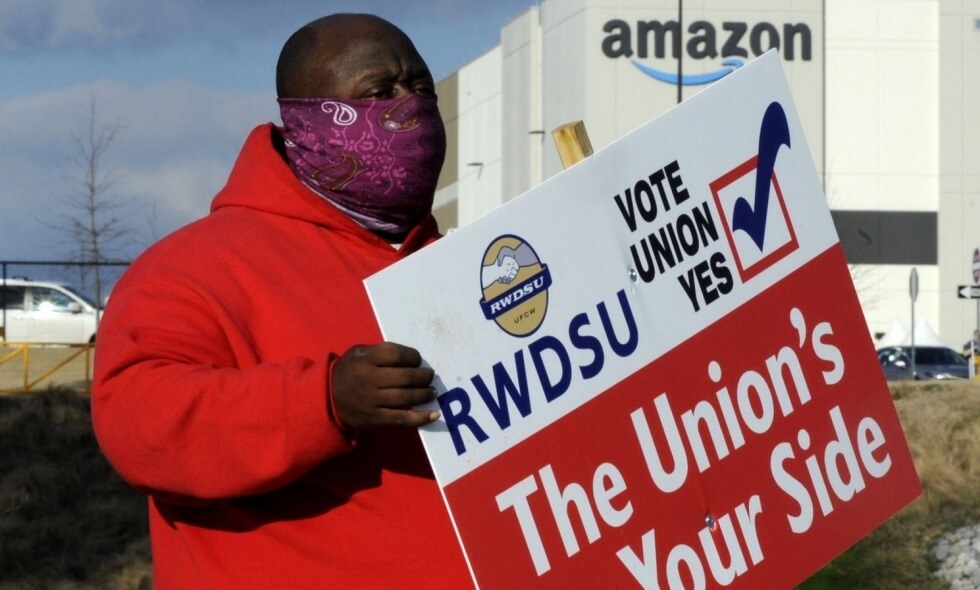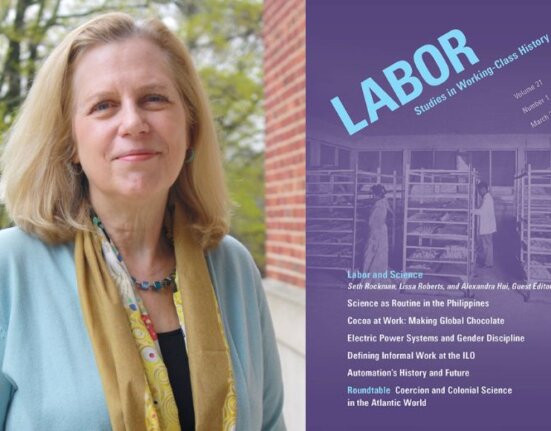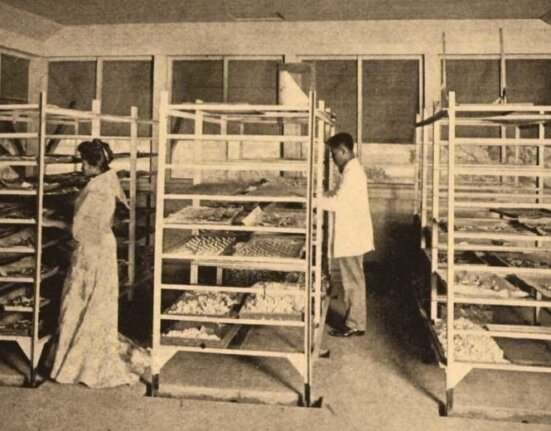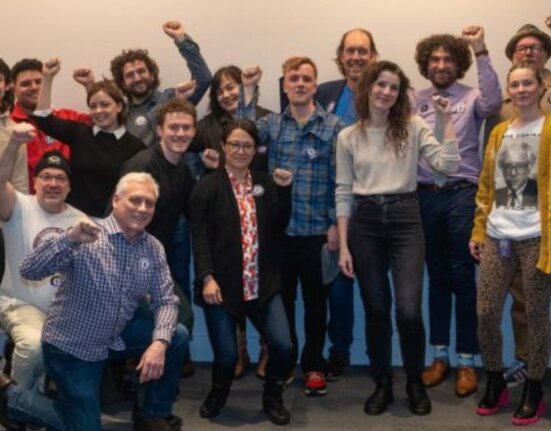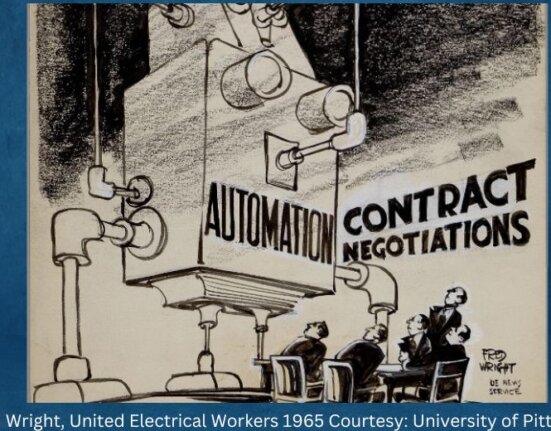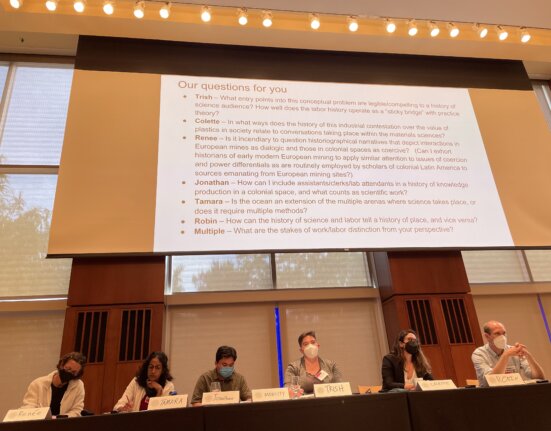RWDSU Critics Have Misrepresented the Facts and Missed the Point
Ever since the RWDSU’s election lost to Amazon in the most-watched union campaign in decades, we have heard from celebrity-seeking “organizing experts,” most of whom weren’t in Alabama, didn’t speak to anyone involved in the RWDSU campaign, yet know exactly what the union organizers did wrong and what they should have done in order to be successful. These critics have organized zero multinational corporations using their proven “deep organizing” methods, and none have taken on Amazon in the USA in the past 25 years. One scathing attack on the union, “Blowout in Bessemer,” published in The Nation within minutes of the result being announced, states that “the results were not surprising, however, for reasons that have more to do with the approach used in the campaign itself than any other factor.” The majority of the widely shared article criticizes aspects of the campaign that I have contended did not exist (), while those most involved with the campaign have also pointed out its multiple inaccuracies. Other scholars, such as leading labor historian Nelson Lichtenstein, has offered a similar critique.
What did the Amazon organizers ever do for us?
Let’s recap what those loser RWDSU organizers actually achieved:
- Ran the biggest union campaign in history against the world’s most powerful corporation, a campaign that literally had the whole world watching; got three thousand workers to sign authorization cards, and received over 1000 votes, if one includes the Amazon-challenged ballots, which is more pro-union votes than unions gained in every NLRB election in Alabama in 2020 put together. They achieved this even after one of the most brutal anti-union campaigns in recent times, in an enormous unit, gerrymandered by Amazon before the election, which has a 100% annual turnover rate. No other union at Amazon has even come close to winning this level of support. And, on Monday, the RWDSU filed a lengthy unfair labor practice charge against Amazon’s unlawful anti-union behavior, which could eventually result in the NLRB overturning the April election result.
- Got a sitting president, for the first time in U.S. history, to make a more than 2-minute statement promoting unions and collective bargaining and denouncing Amazon’s anti-union tactics. If you actually watch it, Biden’s video is even more remarkable, a radical statement which echoes the original intent of the NLRA that employers be excluded from the certification process because their relationship to employees is inherently coercive.
- Thrust union busting into the national spotlight, making front- page news day-after-day for over two months, exposing a larger, younger, and more diverse audience to the brutal realities of anti-union campaigns. Moreover, it did this during a time when historic legislation that would strengthen union rights is pending in Congress. Rep. Andy Levin (D-Michigan) correctly called the RWDSU-Amazon election “a watershed moment for 21stcentury labor law reform.”
- Put Amazon on trial globally for its treatment of workers, including never-ending surveillance by unregulated technologies, its inhumane algorithmic management and brutal pace of its work. Millions of Americans now know the meaning of “time off task” and “making rate,” and understand why Amazon workers regularly pee into bottles or worse, rather than visit restrooms, where they would also be subjected to anti-union propaganda.
- Demonstrated that there is widespread support for unionization among Amazon workers and stronger unions in general. Polls conducted during the campaign showed that a majority of Americans sided with pro-union workers against the company. In response, Amazon resorted to slick anti-union ads on Twitch and anti-union Twitter posts from fake accounts, until it was unceremoniously tossed off both platforms, even though it owns Twitch.
- Got the country’s attention on labor rights in a way that at least opens up the possibility for a real debate, which has not happened in generations. The obstacle to labor law reform is not just the all-powerful corporate lobby, but also that it is a hidden crisis: no one knows or cares about it, and the labor movement has lacked a language with which to explain it to people. But after extraordinary media coverage of the Amazon campaign, we actually have an opportunity to change the dynamics of this debate. The Bessemer campaign captured, for good reason, the attention of the national and global media, which documented Amazon’s dirty tricks in real time, thereby providing us with a unique opportunity for meaningful dialogue on these issues. The issue of labor rights now has the nation’s attention
- Got Jeff Bezos to write a groveling letter to investors last week about how Amazon must “do a better job for our employees.” Do the RWDSU’s critics really doubt that Bezos is feeling the heat of more intense, and more varied, criticism than ever before over how Amazon treats its workers, or that this pressure is a direct result of the union campaign?
- Stimulated greater worker activism at Amazon – the RWDSU has already been contacted by over 1000 workers – which will take many forms. Amazon would like to define this as a fight between Amazon and the union in the context of a NLRB election, because it knows it can dominate that broken process in most cases. In reality, it is fight between Amazon and its employees, who are struggling for better working conditions, and that struggle will take various forms, including, but not limited to, union elections.
Reviving the Labor Beat
Almost as remarkably, Blowout also accuses labor journalists such as Steven Greenhouse, Josh Eidelson and Kim Kelly of “overhyping” the RWDSU campaign and damaging labor’s cause in the process: “When media folks prioritize clicks and followers over reality, it doesn’t help workers, and probably hurts them.” Legendary New York Times labor reporter Greenhouse has already taken issue with this cheap shot against groundbreaking journalism . The criticism is utterly preposterous: these journalists, and many others, have published meticulously researched and balanced stories that consistently stressed the enormous obstacles the union faced. Moreover, their outstanding reporting on the Amazon campaign – which has probably done more to revitalize the “labor beat” than any other single union story – is another great legacy of the campaign, especially the detailed reporting on the actions Amazon took to “crush” the union campaign. Amazon’s brutal conditions and its anti-union shenanigans received extensive coverage not only in the New York Times, (Jeff Bezos-owned) Washington Post, Guardian and Wall Street Journal, but also in Teen Vogue and Elle and major overseas media outlets. Reflecting the quality of the coverage, Lauren Gurley and Edward Ongweso of Vice deservedly won a prestigious “Sidney Award” for their reporting on Amazon’s anti-union campaign.
Focus Should be on Amazon’s Brutal Anti-Unionism, not RWDSU’s Organizing Tactics
The worst thing about having to respond to celebrity-seeking critics is that it would be far more fruitful to focus on Amazon and how it killed the union drive. Never in the past 50 years has labor’s rights received this kind of public attention: think how anemic the debate over the PRO Act would be were it not for the RWDSU campaign at Bessemer. The Senate hearings on the PRO Act ought to focus on what Amazon did to kill the union drive– and that’s what we should be talking about, not second-guessing the RWDSU’s organizing tactics based on scant knowledge of the campaign. The starting point for an effective PRO Act is there be some kind of consensus in this country, which, thanks to Bessemer, could be within our grasp, that our problem is the coercive power that employers like Amazon exert when they participate in NLRB elections.
The RWDSU drive at Amazon has provided this once-in-a-lifetime opportunity. The entire labor movement should be grateful for its brave and audacious campaign.


